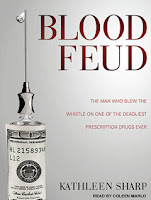 As painful as the role reversal between parent and child may be for you, assume it is worse for your mother or father, so take care not to demean or humiliate them.
As painful as the role reversal between parent and child may be for you, assume it is worse for your mother or father, so take care not to demean or humiliate them.Avoid hospitals and emergency rooms, as well as multiple relocations from home to assisted living facility to nursing home, since all can cause dramatic declines in physical and cognitive well-being among the aged.
Do not accept the canard that no decent child sends a parent to a nursing home. Good nursing home care, which supports the entire family, can be vastly superior to the pretty trappings but thin staffing of assisted living or the solitude of being at home, even with round-the-clock help.
Important Facts
Every state has its own laws, eligibility standards, and licensing requirements for financial, legal, residential, and other matters that affect the elderly, including qualification for Medicare. Assume anything you understand in the state where your parents once lived no longer applies if they move.
Many doctors will not accept new Medicare patients, nor are they legally required to do so, especially significant if a parent is moving a long distance to be near family in old age.
An adult child with power of attorney can use a parent’s money for legitimate expenses and thus hasten the spend-down to Medicaid eligibility. In other words, you are doing your parent no favor—assuming he or she is likely to exhaust personal financial resources—by paying rent, stocking the refrigerator, buying clothes, or taking him or her to the hairdresser or barber.
This is an important book if you have aging parents. It also will be a valuable read for cognizant elderly persons.
















